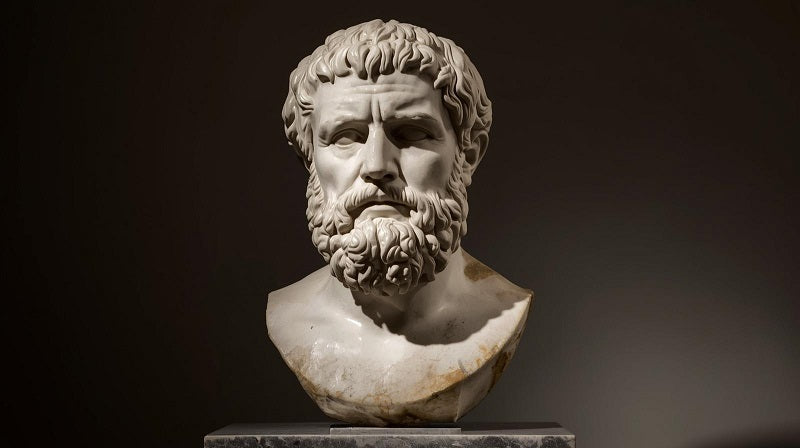
Who was Seneca?
Meet Lucius Annaeus Seneca – though everyone just calls him Seneca, or if you want to sound especially clever, “Seneca the Younger.”
He was a philosopher, playwright, and political operator who somehow managed to be both Nero’s babysitter and one of history’s wisest life coaches. Not bad for a guy born around 4 BCE in Corduba (modern-day Córdoba, Spain).
A master of Stoicism – a philosophy that champions reason, self-control, and living with purpose – Seneca left behind words of wisdom that still resonate to this very day.
Seneca’s rhetoric & rollercoaster politics
Seneca grew up in Rome, learning from big-name Stoic teachers like Attalus, who first sparked his passion for philosophy. But Seneca wasn’t content just writing about virtue – he dove headfirst into politics. Cue the drama.
Under the reigns of emperors Caligula and Claudius, he rose to prominence, made a few enemies (as you do in Rome), and eventually found himself accused of an affair with Julia Livilla. The end result? An extended “vacation” on the island of Corsica. Instead of sulking, though, Seneca sharpened his pen, pondered some of life’s biggest questions, and wrote about them with a mix of Stoic coolness and relatable practicality.
Enter Agrippina, mother of Nero, who pulled strings to bring Seneca back. Soon he was tutoring young Nero himself. For a golden moment, Seneca (with Burrus, the praetorian prefect) basically ran the empire.
But Nero being Nero… well, you can guess how long that lasted.
Stoicism with style
Seneca didn’t just write philosophy – he packaged it with punchy one-liners. Take these gems that wouldn’t look out of place on Twitter/X or hanging on the wall of your office:
“A gem cannot be polished without friction. Nor a man perfected without trials."
“It is not the man who has too little, but the man who craves more, that is poor.”
And this one is my personal favourite out of all of his wonderful quotes:
“Luck is what happens when preparation meets opportunity.”
Good old Seneca. He was basically the OG quote machine, blending hard truths with a wink of optimism.
The end of Seneca
But Seneca’s grand finale came in 65 CE when he was accused of plotting against Nero in the Pisonian conspiracy. Nero ordered him to take his own life – a grim command that Seneca met with Stoic calm.
According to Tacitus, Seneca opened his veins and faced death like he had always written about it: unflinching, even poetic.
“To bear trials with a calm mind robs misfortune of its strength and burden,” as Seneca once wrote.
May we all be so brave when it comes time to farewell this mortal coil.
Seneca’s legacy
Seneca’s tragedies – like Phaedra and Thyestes – inspired Renaissance drama, while his essays and letters went on to shape early Christian thought. Fast forward to today, and he’s among the ancient world’s bestselling self-help authors.
“Hang on to your youthful enthusiasms – you’ll be able to use them better when you’re older,” he advised.
What also makes Seneca endlessly fascinating are his contradictions. For instance, he was fabulously rich but a Stoic; a power broker at court but also a critic of power. He wasn’t perfect, and neither are we. Perhaps that’s why his advice feels so real.
Two thousand years later, Seneca still whispers across the centuries: life is short, don’t waste it.
On The Ancient Advisor, Seneca’s wise words live on in beautifully designed prints, turning Stoic wisdom into stylish wall art. Check out my inspirational Seneca quotes here.
